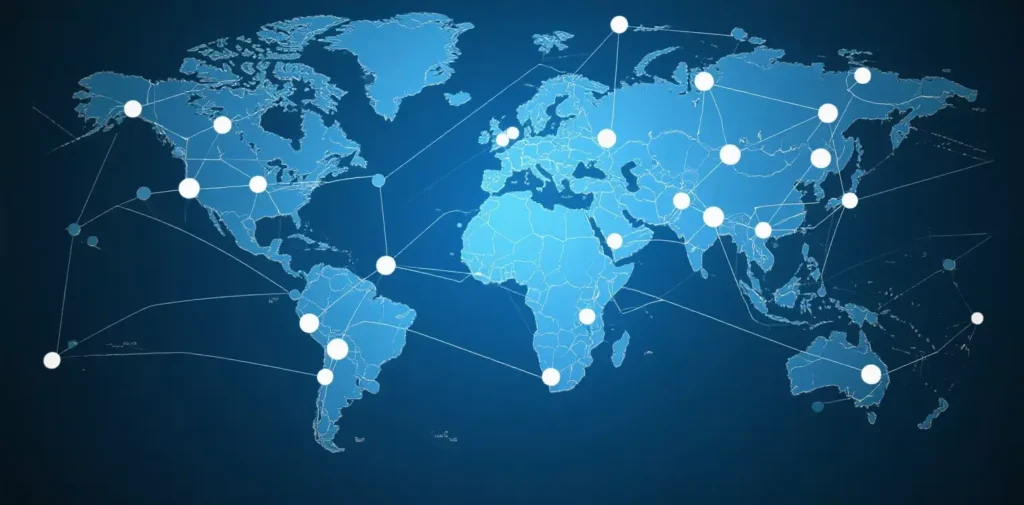Have you ever been stuck in an endless loop, clicking on pictures of traffic lights and crosswalks just to prove you’re human? Or perhaps you’ve sent an important email, only to find out it landed in the recipient’s spam folder? The culprit might not be you, but your digital address—your IP address—and its invisible, all-important reputation.
In the world of internet science, having a “clean IP“ is the gold standard for a trusted online identity. This popular science tutorial will demystify this crucial concept. We’ll explore the science of IP reputation, what makes an IP “clean” versus “dirty,” and why it has a profound impact on your entire online experience.

Your Digital Address and Its Hidden Reputation
Every device connected to the internet has a unique IP (Internet Protocol) address. Think of it as your home’s postal address, but for the digital world. It’s how websites, services, and other devices know where to send and receive information.
But here’s the fascinating part: just like a person or a business can have a reputation, so can an IP address. This IP reputation is an invisible score that online services use to quickly judge how trustworthy your connection is. A high, positive score means you have a “clean IP.” A low, negative score means your IP is considered “dirty” or “flagged.”
The Internet’s Neighborhood Watch – How Reputation is Tracked
How is this reputation score calculated? A global, interconnected “neighborhood watch” of security firms, email providers, and anti-spam organizations (like Spamhaus) is constantly monitoring the internet for bad behavior. They look for IP addresses that are involved in malicious or suspicious activities, such as:
Sending Spam: An IP address that sends out thousands of unsolicited emails will be quickly flagged.
Malicious Attacks: IPs used for hacking attempts, hosting malware, or participating in DDoS (Distributed Denial of Service) attacks are immediately blacklisted.
Bot-like Activity: An IP address making thousands of rapid-fire requests to a website (a sign of aggressive web scraping) will have its reputation downgraded.
Fraudulent Behavior: IPs associated with creating fake accounts or multiple failed login attempts are considered high-risk.
When an IP address is caught engaging in these activities, it gets added to one or more blacklists, which are shared across the internet. Being on a blacklist is the primary sign of a “dirty” IP.
The Consequences of a “Dirty” IP
Once your IP address has a bad reputation, you’ll start running into invisible walls all over the internet.
For Individuals: You’ll face constant CAPTCHA challenges, as websites demand extra proof that you’re a human. You might be blocked from accessing certain websites or online services entirely. Your emails are far more likely to be filtered into spam folders, as email servers don’t trust messages coming from a “bad neighborhood.”
For Businesses: The consequences are severe. A marketing agency managing social media accounts from a flagged IP will see those accounts get suspended. A data science firm using a dirty IP for research will find its web crawlers blocked. An e-commerce business trying to monitor competitor prices will fail. A dirty IP can bring professional operations to a standstill.
The Quest for a Clean IP – Sourcing and Management
So, how do professionals ensure they always have a clean IP? The science lies in understanding the source of the IP address.
Datacenter IPs: These come from servers in a data center. Because they are cheap and easily acquired, they are frequently used for automated tasks and, unfortunately, for spam and abuse. As a result, they often have a mixed or poor reputation.
Residential IPs: These are IP addresses assigned by Internet Service Providers (ISPs) to real homes. Because they are associated with legitimate human users, they have the highest reputation and are considered the “cleanest” IPs available.
For any professional task that relies on a trusted online identity, starting with a clean IP is non-negotiable. This is why businesses turn to professional proxy networks. A specialized service like IPFLY, for example, provides access to a massive pool of high-reputation residential IPs. By routing their traffic through these verified “clean” addresses, businesses can ensure their automated research and management tasks run smoothly without being flagged or blocked. This demonstrates the science of proactively managing your digital reputation by choosing the right kind of IP address from the start.
Need high-standard proxy strategies or stable enterprise-grade services? Visit IPFLY.net now for professional solutions, and join the IPFLY Telegram community—get industry insights and customized tips to fuel your business growth and seize opportunities!

Your Digital First Impression
A “clean IP” is more than just a technical term; it’s your digital first impression. It’s the invisible passport that grants you smooth, trusted access to the online world. While you may not always have control over the reputation of the IP you’re assigned on a public Wi-Fi network, understanding the science behind it reveals a crucial aspect of how the modern internet functions. In a world built on data and trust, a clean IP ensures your digital address is always a welcome guest.


